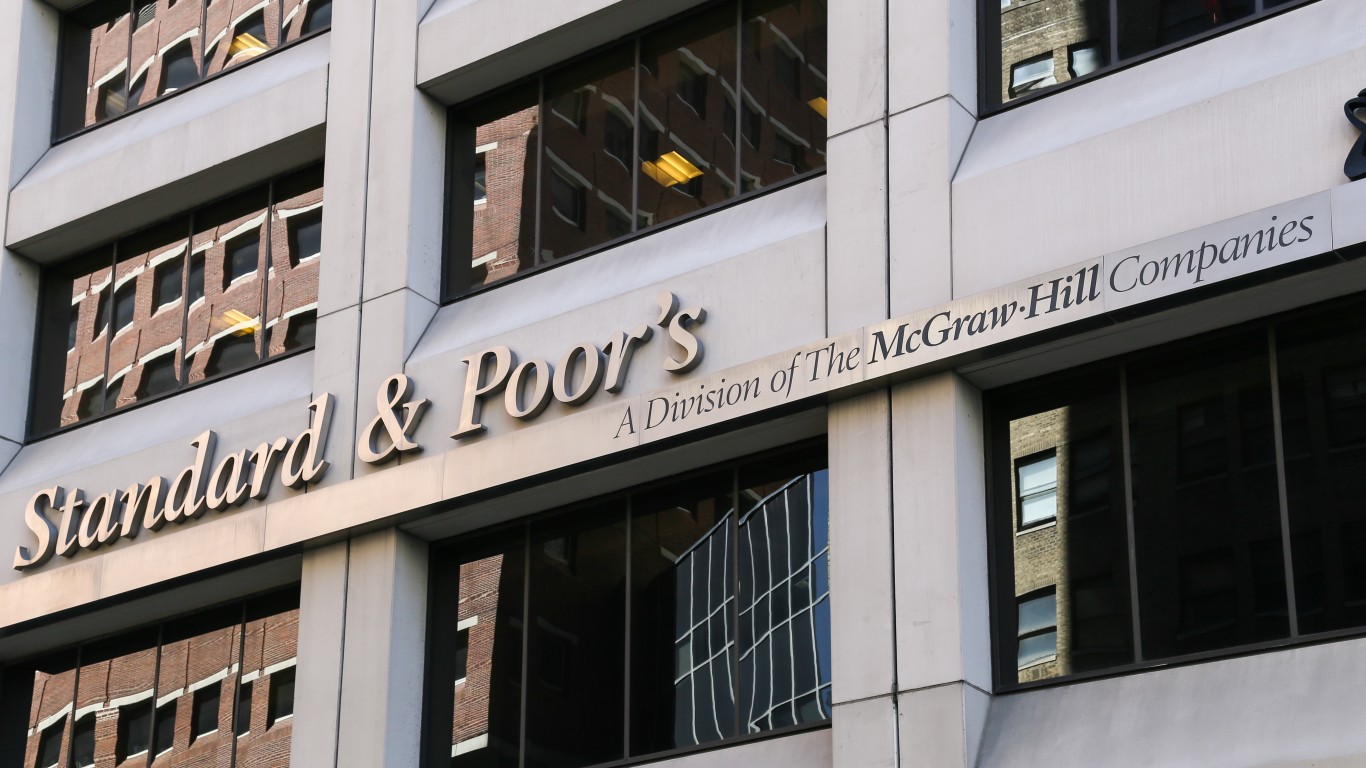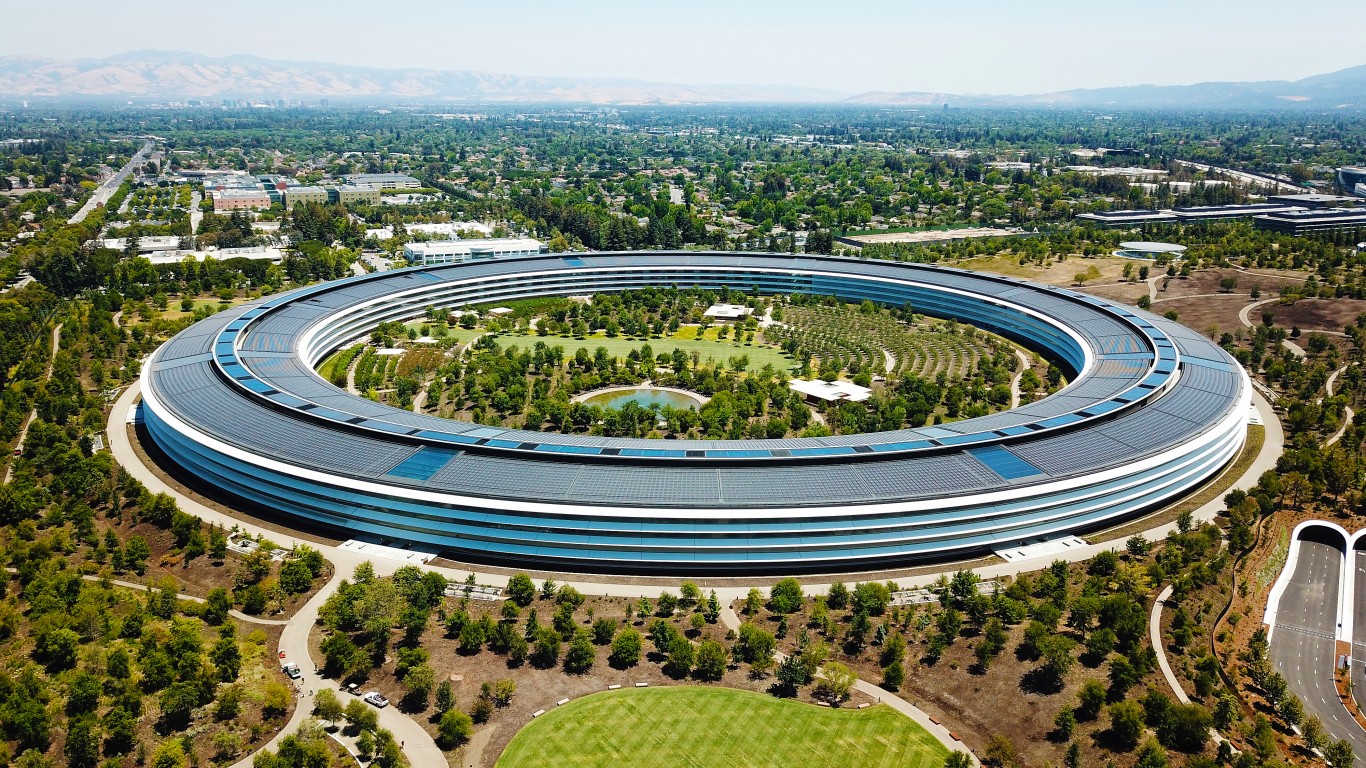Investing
These Are the 3 Largest Holdings in Billionaire Paul Tudor Jones' Macro Trends Portfolio

Published:

Warren Buffett is famous for being a value investor while Peter Lynch tended to be growth-oriented. Some investors are neither, or rather they are a mix of the two as everyone wants to buy a stock at a good price and see it grow in value.
Paul Tudor Jones, however, takes a different approach. He takes a look at macroeconomic and geopolitical trends to determine where to invest. Hedge Fund Alpha describes Jones’ strategy as combining “event-driven trading with a global macro approach. His primary goal is to capitalize on short-term price fluctuations.”
It notes he invests across a broad range of sectors and industries to diversify his portfolio while lowering risk. Indeed, Jones owns nearly 1,500 stocks in his Tudor Investment Fund while also relying heavily upon stock options. And though we’ve long heard that past performance is no guarantee of future results, the site says the billionaire investor will analyze past pricing action to forecast future results.
For Jones, his strategy has been very successful. The hedge fund has $8.9 billion in assets under management and he has been able to achieve annualized returns of 19% since the Tudor Investment Fund’s founding in 1980. That is similar to what Buffett has achieved over his 65 years with Berkshire Hathaway (NYSE:BRK-A)(NYSE:BRK-B).
With so many stocks in Jones’ portfolio, no single stock holds a very large position, but the following three stocks still represent sizable holdings.

Investors might be surprised to learn just how many billionaires own large tranches of the SPDR S&P 500 ETF Trust (NYSEARCA:SPY). We saw it with George Soros, who owns $245 million worth, his largest position; Ken Griffin owns $3.1 billion worth in his Citadel Advisors fund, also his largest holding; and Ray Dalio’s Bridgewater Associates — the world’s largest hedge fund — owns $387 million worth.
Jones also holds a significant amount of the index-tracking ETF. The Tudor Investment Fund owns 456,560 shares that are currently valued at $253.4 million. While that represents just 2.8% of the portfolio, it is his largest holding. Notably, Jones’ doubled his investment in the S&P 500 ETF in the second quarter buying more than 233,000 shares. With an average buy price just under $500 per share, Jones has an implied 14% gain on his holdings.
The reason so many billionaires buy the ETF is it gives them broad exposure to U.S. stocks. It’s why small investors could do well with such a plain vanilla investment themselves.

At $102.3 million, Apple (NASDAQ:AAPL) is Jones’ second-largest holding at 1.2% of the portfolio. He hiked his position in the tech giant by 45% in the second quarter, which would have coincided with Apple’s big product reveals for the coming year.
It was during its events, like the Worldwide Developers Conference in June, that investors were introduced to Apple Intelligence for the iPhone, its artificial intelligence technology. Analysts expect a big surge in sales and its biggest manufacturer, Foxconn added more than 50,000 workers ahead of its release.
Now that Apple released the iPhone 16 the other day, analysts seem impressed with the lineup and expect consumers to drive a new growth cycle to take advantage of its AI features. That should bolster the tech stock’s revenue and profit expansion in 2025.
A lot of these expectations are probably baked into Apple’s stock price already. Shares are up 33% over the past six months. With Jones having an average buy price of $181 per share, there is an implied 14% gain so far.

Jones third-biggest holding is pharmaceutical stock Bristol-Myers Squibb (NYSE:BMY). He owns 2 million shares valued at $93 million, which account for just under 1% of the portfolio’s total. He has an average buy price of almost $48 a share, which gives him a 3% gain.
It is interesting to note Jones first bought the stock in the fourth quarter of 2023 then sold it all in the first. He then came back in the second quarter, buying two-and-a-half times more stock than the last time.
While most of Bristol-Myers’ strong growth comes from its cancer treatment Revlimid, that will continue slowing as it faces more generic competition after losing patent protection. BMY stock is down 4% year-to-date and 16% over the past year. What Jones undoubtedly likes about the pharma is its robust pipeline of therapies.
Bristol-Myers Squibb still has a portfolio of important marketed drugs, such as Eliquis for treating blood clots and to prevent strokes, and Opdivo, another oncology drug. But its pipeline treatments like its most advanced therapy, KarXT for the treatment of schizophrenia, is what excites many. The Food & Drug Administration is expected to give its approval this week.
The thought of burdening your family with a financial disaster is most Americans’ nightmare. However, recent studies show that over 100 million Americans still don’t have proper life insurance in the event they pass away.
Life insurance can bring peace of mind – ensuring your loved ones are safeguarded against unforeseen expenses and debts. With premiums often lower than expected and a variety of plans tailored to different life stages and health conditions, securing a policy is more accessible than ever.
A quick, no-obligation quote can provide valuable insight into what’s available and what might best suit your family’s needs. Life insurance is a simple step you can take today to help secure peace of mind for your loved ones tomorrow.
Click here to learn how to get a quote in just a few minutes.
Thank you for reading! Have some feedback for us?
Contact the 24/7 Wall St. editorial team.